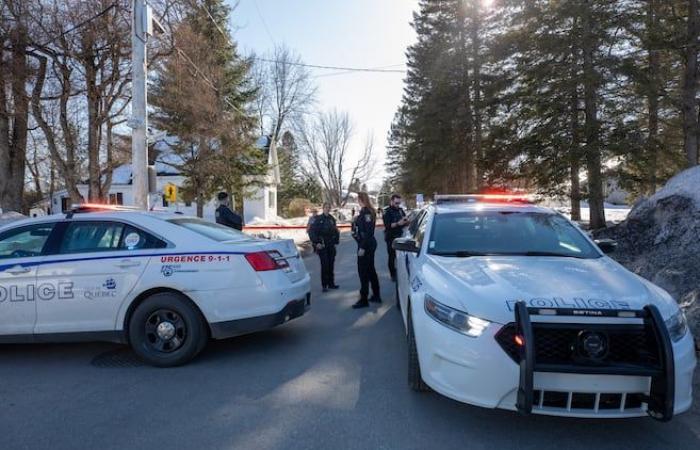On the third day of the public inquiry into the death of Jacques Côté, the coroner raised several concerns regarding the application of Law P-38; on the protection of people whose mental state presents a danger to themselves or others.
On April 4, 2022, police officer Sarah-Émilie Lefebvre and her partner met Kim Lebel at the request of her parents. They were worried because their son had been showing signs of psychosis for several days.
Two days later, Kim Lebel beat her neighbor, Jacques Côté, to death with a metal bar. He was found not criminally responsible for her death during the trial, but a public inquiry was requested to avoid similar tragedies.
“He was not aggressive”
On Wednesday, Sarah-Émilie Lefebvre recounted her intervention with the man before the coroner Me Géhane Kamel.
On April 4, Kim Lebel appeared coherent and lucid in front of the police. “He seemed sober. He was physically clean,” explains the police officer.
Law P-38 imposes two conditions on police officers to forcibly take a person in crisis to the hospital. It must present a serious danger (which threatens someone’s physical integrity) and imminent danger (which requires immediate intervention to avoid irreversible damage).
Two days before the death of Jacques Côté, these conditions were not met. “At no time was he aggressive towards us. We knew we were with an individual who has a mental health problem. Yes, he was very talkative. He gave several details that were not useful, but it was just enough to reframe it and his speech was fluid again,” says Sarah-Émilie Lefebvre.
A single lever
Earlier in the day, Kim Lebel allegedly made threats against her mother, then pushed her against the wall. However, the parents did not reveal these details to the police.
Without a complaint for assault or other criminal offense, the police officer considers that her “hands are tied”. “Legally, all the law allowed us to do was to refer the parents to La Boussole. At the criminal level, our powers were very limited.”
Me Géhane Kamel agrees that the police officers involved respected Law P-38. However, she believes that certain modifications should be made. “The people who know their loved ones best are often their parents,” she emphasizes.
“It should have an automatism. When it’s a parent who calls, the person should be evaluated.”
— Me Ghéane Kamel, coroner
At present, “the only way to get someone who could be in psychosis into the hospital is to take the case to court,” laments the coroner. According to her, this burdens the justice system and can lead to tragedies like that of April 6, 2022.
No complaints about the response time
The day Jacques Côté died, the police arrived after the tragedy. The length of the intervention was criticized by several witnesses, including Kim Lebel’s parents. The latter had given an arrest warrant to the police three hours before their arrival on the scene.
On Wednesday, police officer Jean-Michel Côté-Lemieux justified the delay. An exhaustive risk analysis had to be done before sending his teams into the field, he said. “Mental health is taken seriously, we have to do this well. We must not cut corners.”
The coroner makes no reproach for the time used to assess the situation.
The Bureau of Independent Investigations (BEI) already looked into this matter last year. After analyzing the investigation report, the Director of Criminal and Penal Prosecutions (DPCP) did not file any charges against the Quebec police.
The public inquiry into the death of Jacques Côté continues all week at the Quebec courthouse. The victim’s son, Simon Côté, was added to the list of witnesses on Wednesday. The victim’s relatives initially refused to be heard during the investigation.
Jacques’ son has been attending the hearings since Monday.






